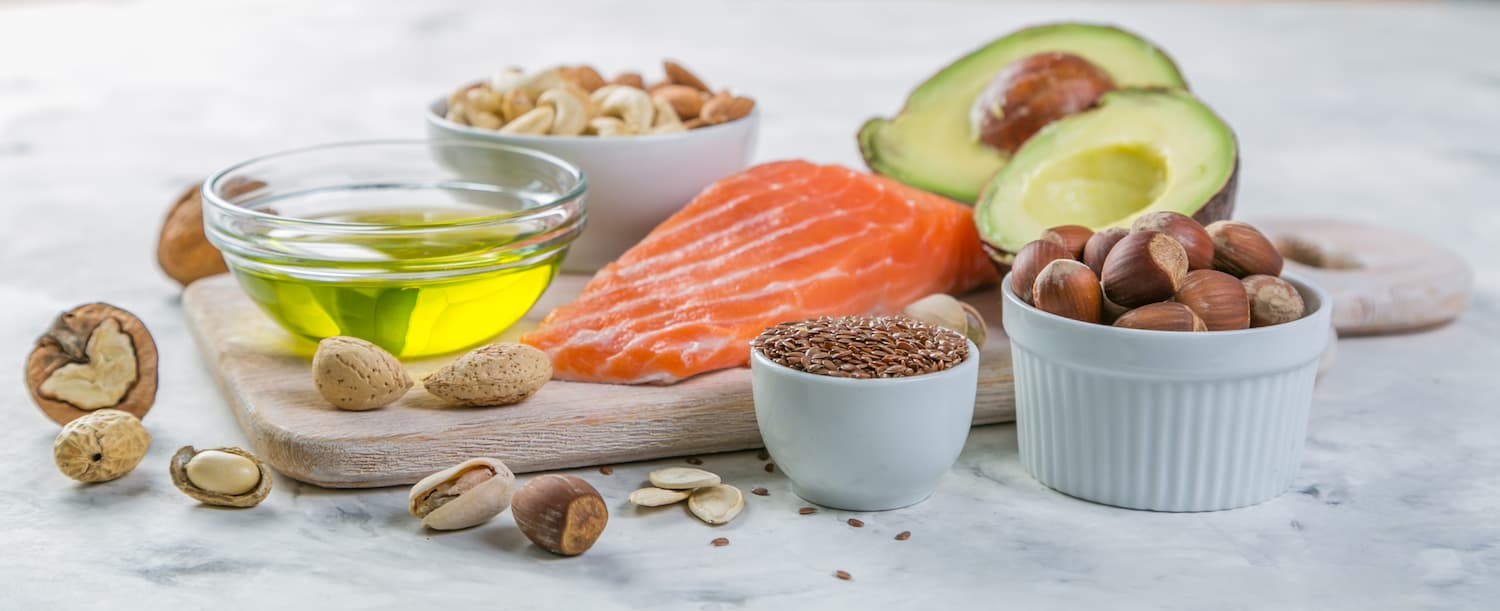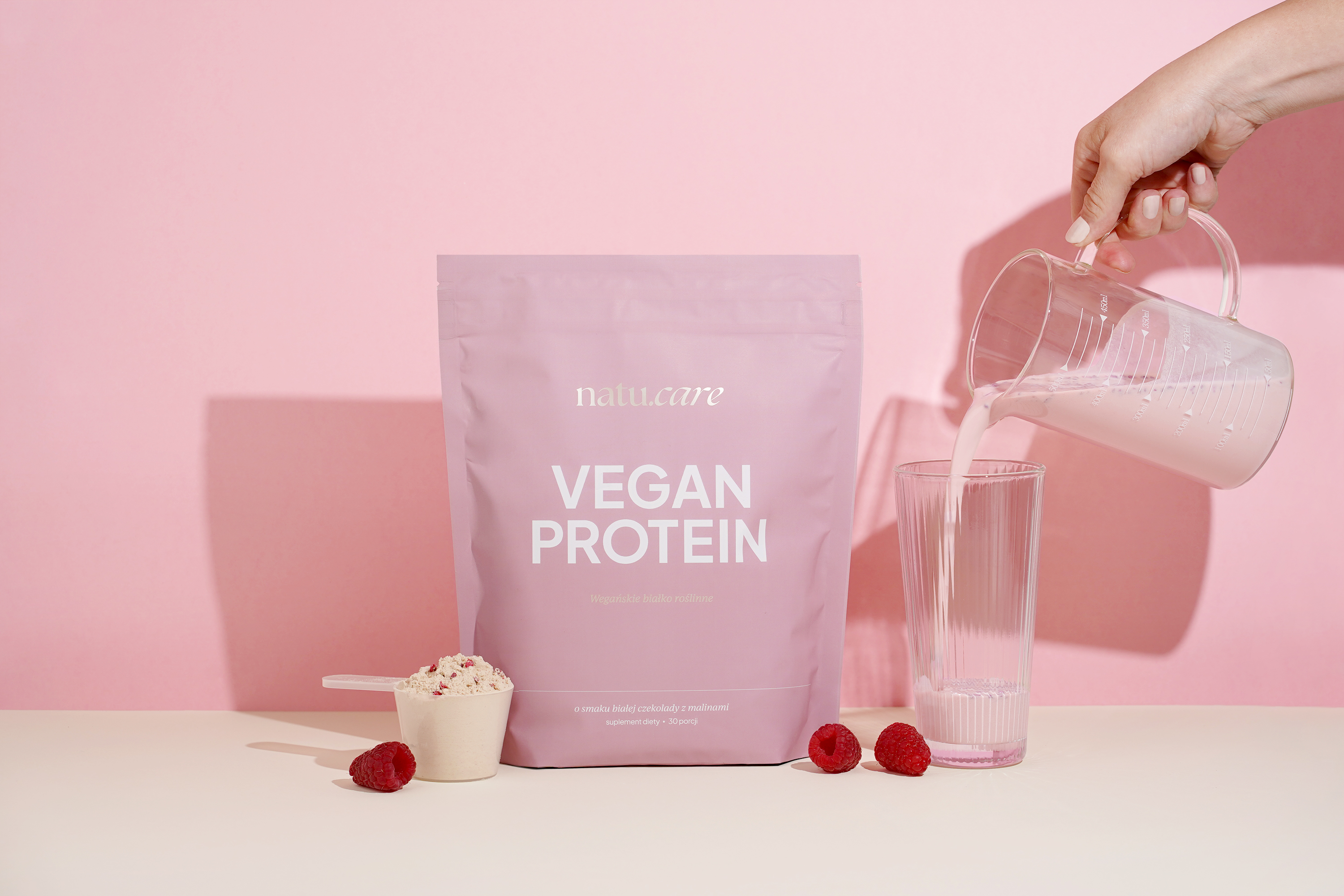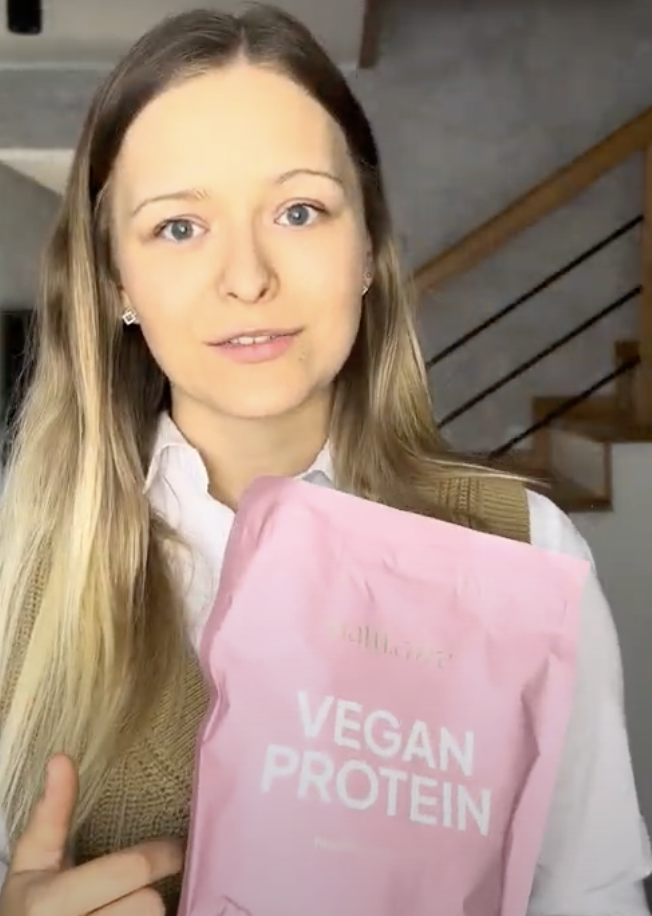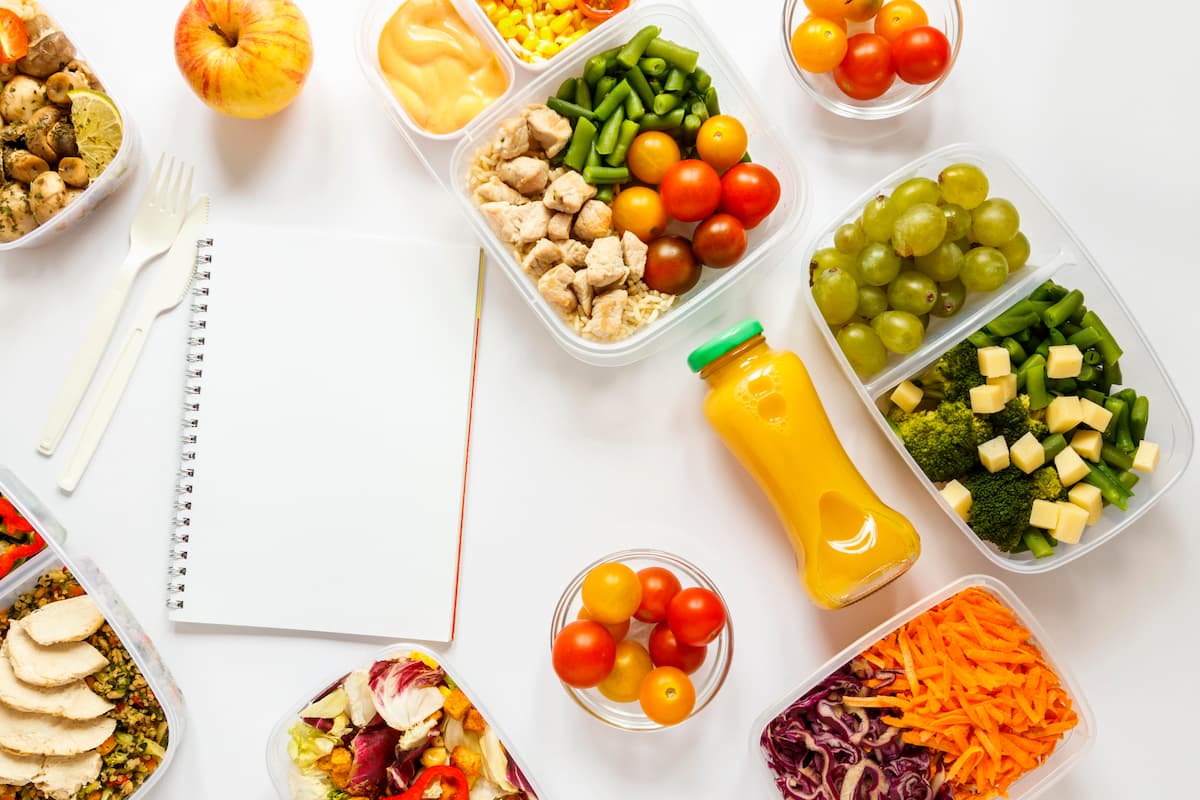The ketogenic (keto) diet: what it is, how to follow it and what to eat + discussion of pros and cons
The ketogenic diet is characterised by a low carbohydrate and high fat supply.


Learn more about our editorial process
.

Learn more about our editorial process
.

Learn more about our editorial process
.
Why you can trust us
Articles on Natu.Care are written based on scientific research, data from government websites and other reliable sources. The texts are written in cooperation with doctors, nutritionists and other health and beauty experts. Articles are reviewed before publication and during significant updates.
.Learn more about our editorial process
.Information about advertisements
Content on Natu.Care may contain links to products from the sale of which we may receive a commission. When creating content, we adhere to high editorial standards and take care to be objective about the products discussed. The presence of affiliate links is not dictated by our partners, and we select the products we review ourselves completely independently.
.Learn more about our terms and Conditions
.The ketogenic diet (a.k.a. keto or ketogenic) is a diet based on eating very few carbohydrates and a huge amount of fats. It is designed to allow us to eat deliciously while making it easier to lose weight.
The ketogenic diet was created to help reduce body fat and also improve cardiovascular function. If you've heard good things about it from your friends, now you can read what the experts have to say about it.
The ketogenic diet is a great way to help you lose weight.
With Dr Witold Tomaszewski, M.D., and Julia Skrajda, clinical dietician, we present the most important information about the ketogenic diet.
From the article you will learn:
.- What the ketogenic diet and ketosis are .
- What the rules are on the keto diet .
- What are the main advantages and disadvantages of the ketogenic diet .
- Which foods are allowed and which are prohibited on the ketogenic diet .
- Who should not follow a ketogenic diet .
- How to start and stop the keto diet safely .

Odkryj, co dla Twojego zdrowia i urody może zrobić Białko Wegańskie, biała czekolada - malina
Natu.Care Białko Wegańskie, biała czekolada - malina
Pyszne, wegańskie białko roślinne, biała czekolada i malina - pomoże uzupełnić Twoją dietę w wartościowe proteiny. To aż 26 g białka i tylko 136 kcal w porcji.
Sprawdź cenę
Dzięki białku od Natu.Care moja odporność się poprawiła a włosy wzmocniły. A smak białej czekolady z maliną - to świetnie połączenie!Gabriela
See also:
- Mediterranean diet
- The DASH diet
- Digestible diet
- Dabrowski's Diet
- SIRT diet
- Diabetes diet
- Best magnesium [ranking + expert opinion] .
- Magnesium [properties + deficiency symptoms + best sources] .
- Omega-3 fatty acids [action + application] .
- Blood tests [how often to perform + how to prepare] .
- Thyroid tests [which ones to do + standards + results]
- The liver [symptoms of diseases + how to take care of it and what to avoid]
- Fatty (greasy) liver [what it is + causes + symptoms] .
- Liver tests [what they are + when to perform] .
- Liver supplements [ranking + pharmacist's opinion]
- Tablets for the liver [ranking + pharmacist's opinion]
- Omega acids [what they are + types] .
What is the ketogenic diet?
.
The ketogenic diet (otherwise known as the keto or ketogenic diet) is a diet very high in fat and low in carbohydratesand. Drastically reducing carbohydrate intake and increasing fat supply puts the body into a state of ketosis. In this state, we can produce energy from fat and therefore burn it.
What are types of ketogenic diet?
.
There are several types of ketogenic diet. However, the most common are four typesand.
- Standard ketogenic diet (SKD). It is characterised by a very low carbohydrate, moderate protein and high fat supply. In most cases, it consists of the following macronutrient breakdown: 70% fats, 20% protein and 10% carbohydrates - a distribution of kcal per day. .
- Cyclic ketogenic diet (CKD). This type of keto diet allows you to take in higher amounts of carbohydrates at selected times. An example would be five days on the keto diet, followed by two days when we can consume larger amounts of carbohydrates (from 60 to as much as 80% of calories per day in the form of carbs).
- Targeted ketogenic diet (TKD). This ketogenic diet allows you to add more than enough carbohydrates to your diet (15 to 50g) before increased physical exertion (training).
- High-protein ketogenic diet (HPKD). This is, as the name suggests, a ketogenic diet that provides the body with a lot of protein. The most common macronutrient ratio is 60% fat, 35% protein and just 5% carbohydrates. .
Standard and high-protein ketogenic diets are popular types of keto diet that have been used for a long time. The cyclic and targeted ketogenic diets, on the other hand, are newer 'inventions'. They are most commonly used by bodybuilders or athletes. In today's article we look at the standard keto diet. Would you like to know more about the other types? Let us know in the comments!
One of the most important tenets of the ketogenic diet is what is known as ketosis. Find out what this metabolic state is and how to achieve it.
What is ketosis?
.
Nutritional ketosis is a metabolic stateand in which the body uses ketones (instead of simple sugars) to produce energy. Ketones are formed by the breakdown of fat. Most often ketosis occurs after about 3-4 days of following a ketogenic diet. The result is the rapid burning of excess fat.
Why ketosis can lead to weight loss?
.
Most cells in the human body produce energy from glucose (simple sugars). When this becomes scarce, it is necessary to find another source of energy. This becomes the aforementioned ketones, which are produced from fat. This is why the ketogenic diet can lead to weight loss.
.
What is keto-flu?
.
Keto flu is our body's 'rebellion' against carbohydrate withdrawal. It most commonly occurs around 24-48 hours after starting a ketogenic diet and produces the following symptoms.
Symptomsand keto-flu:
- headaches, .
- nausea, .
- constipation, .
- vomiting, .
- fatigue, .
- insomnia, .
- gastrointestinal problemsand, .
- weakness , .
- irregular heartbeat , .
The above symptoms are, of course, nothing pleasant. However, there are a few ways that can help you deal with keto-flu more quickly.
How to get rid ofand keto-flu?
.
- .
- Drink more water. .
- Avoid over-exertion (but don't cut back completely!). .
- Get good, healthy sleep. .
- Take electrolytes (besides water, tomato juices or a diet rich in sodium or potassium will provide you with them.
- Provide your body with electrolytes.
- Provide your body with "healthy" fats (seed or seed oils or olive oil will provide you with these). .
Don't give up! Most often, keto flu lasts for one to two weeks. However, if you are still experiencing discomfort after this time, see your doctor.
What is keto-adaptation?
.
Keto-adaptation is a long-term processand in which your body "learns" to make full use of fats for energy. Keto-adaptation begins 4-12 weeks after entering a state of ketosis. Endurance athletes are an exception. For them, keto-adaptation can start as early as 2 weeks into a ketogenic diet.
Note!
.Keto-adaptation is a fully individual process. For some people it will occur already after the aforementioned 4 weeks, while others will have to wait much longer.
Natu.Care Collagen Premium 5000 mg, mango & passion fruit

- Collagen content: 5000 mg marine collagen hydrolysate
- Additional active ingredients: vitamin C, low molecular weight hyaluronic acid (and L-theanine and coenzyme Q10 in cocoa flavoured collagen or vitamin A and vitamin E in mango–passion fruit flavoured collagen)
- Form: powder sachets
- Dose: 1 sachet per day
- Sufficient for: 30 days
Product description
Fish collagen from the Natu.Care brand in a dose of 5000 mg, based on certified ingredients of the best quality. Regular supplementation will positively influence the appearance of the skinóry, hairów and nails – they will be rebuilt and strengthened from the inside.
In addition to collagen, which is valuable for health and beauty, it also offers other active ingredients that help to maintain a youthful complexion, shiny hair and strong nails.
The formula contains a sufficient portion of the active ingredient to positively affect joints, the musculoskeletal system and immunity.
Natu.Care Premium Collagen is available in two flavours – Cacao Bloom and Rise&Shine. Both formulas are based on the following active ingredients: marine collagen hydrolysate, wild roseóbud extract and hyaluronic acid.
Additionally, Cacao Bloom contains natural L-theanine, coenzyme Q10 and defatted Dutch cacao. Rise&Shine instead contains vitamin E and vitamin A.
These are the best collagens in the world.
These best fish collagens on the market also rós taste – Cacao Bloom is a treat for chocolate lovers. Rise&Shine will appeal to those whoólike the refreshing taste of mangoófruit and passion fruit.
Pros and cons
Pros:
- Vitamin C supports the body's collagen production, enhancing its effectiveness.
- An effective dose of hyaluronic acid, which additionally supports skin hydration and joint health.
- Fish collagen absorbs 50% better. Additionally, the manufacturer specifies the fish species it is sourced from (Atlantic cod).
- The composition has been tested by the independent and accredited J.S. Hamilton laboratory.
- MSC (Marine Stewardship Council) quality certification, which confirms that the collagen source supports sustainable fishing practices.
Cons:
- None.
Additional information
Natu.Care's fish collagen receives praise for its delicious taste. You won't find the fishy aftertaste that often comes through in other collagens. Plus, you have two tasty flavors to choose from: cocoa and mango-passionfruit.
Active ingredients like coenzyme Q10, hyaluronic acid, and natural L-theanine provide anti-inflammatory and antioxidant benefits while slowing down aging processes.
User review
Super, after about 6 weeks of use, the skin on my face became noticeably firmer. Wonderful taste.
Ania ZalewskaNatu.Care customer
Natu.Care Premium collagen 10 000 mg, mango-maracuja

- Collagen content: 10,000 mg marine collagen hydrolysate
- Additional active ingredients: vitamin C, low molecular weight hyaluronic acid (and L-theanine and coenzyme Q10 in cocoa flavoured collagen or vitamin A and vitamin E in mango–passion fruit flavoured collagen)
- Form: powder sachets
- Dose: 1 sachet per day
- Sufficient for: 30 days
Product description
One of the strongest collagens on the market, whichós provides as much as 10,000 mg in a daily serving. This allows the formula to effectively support the condition of the skin, hair and nails.
With this supplement, you will support your beauty, which will allow you to visually stop the ageing process and feel a second youth!
Natu.Care Collagen Premium 10 000 mg comes in two flavours – cherry and mango-maracuja. Both formulas have the same product backbone – collagen, hyaluronic acid and vitamin C.
In the cherry version you additionally find glucosamine, chondroitin and Indian frankincense resin extract. Mango-maracuja, on the other hand, contains vitamin E and vitamin A.
Pros and cons
Pros:
- Tested collagen formula – SeaGarden, whose effects have been confirmed in clinical studies.
- Effective dose of hyaluronic acid, additionally moisturizing the skin and positively impacting joint health.
- Vitamin C supports the body’s natural collagen production.
- The composition has been tested by the independent and accredited J.S. Hamilton laboratory.
- The product has an MSC (Marine Stewardship Council) quality certification – the collagen source supports sustainable fishing practices.
Cons:
- None.
Additional information
Users praise Natu.Care Collagen Premium for the easy dissolvability of the powder.
User review
I noticed a significant improvement in my skin texture after a few weeks of taking collagen regularly. My complexion is now as soft as velvet!
Natu.Care Collagen Premium 10000 mg, cherry

- Collagen content: 10,000 mg of hydrolyzed bovine collagen
- Additional active ingredients: vitamin C, low molecular weight hyaluronic acid, glucosamine, chondroitin, extract of Indian frankincense resin (boswellia serrata)
- Form: powder sachets for drinking
- Serving: 1 sachet per day
- Lasts for: 30 days
Product description
One of the strongest collagens on the market, providing as much as 10,000 mg per daily serving. This product can effectively support the condition of joints, skin, hair, and nails.
With this supplement, you will support your skeletal and joint system as well as your beauty, helping you visually halt the aging process and feel rejuvenated!
Pros and cons
Pros:
- The daily portion of collagen is very large – as much as 10,000 mg.
- Proven collagen formula – COLLinstant, whose effectiveness has been confirmed in clinical studies.
- Effective dose of hyaluronic acid, which additionally moisturizes the skin and positively affects joint health.
- Vitamin C supports the body's natural collagen production.
- Glucosamine is a fundamental building block of compounds found in joint cartilage and a component of collagen that gives elasticity to connective tissue in tendons.
- Chondroitin is a natural component found in the human body, mainly in cartilage. This large molecule (mucopolysaccharide) has the ability to absorb water, which helps maintain the elasticity and resilience of cartilage.
- Frankincense resin extract supports blood circulation and joint mobility and reduces their stiffness. It may help alleviate inflammatory conditions.
- The composition has been tested by the independent and accredited J.S. Hamilton laboratory.
Cons:
- None.
Additional information
Users praise Natu.Care Collagen Premium for the easy dissolving of the powder.
Premium Sodium Butyrate
Product description
Premium Sodium Butyrate is a natural support for your digestive system. With a high dose of butyric acid (940 mg), it supports the regeneration of the intestinal mucosa, improving gut health and function, and aids in the absorption of nutrients. By taking care of your intestines, you're taking care of the health of your entire body.
Studies involving people suffering from irritable bowel syndrome confirm that sodium butyrate is ideal for supporting issues related to bacterial flora imbalances (for example, after antibiotic therapy), constipation and diarrhea, inflammation of the intestinal mucosa, or a diet low in fiber.
Premium Sodium Butyrate capsules are made using the innovative DRcaps® technology. This guarantees that the active ingredients in the product are protected from the destructive effects of stomach acids and digestive enzymes. As a result, we can be sure that the beneficial ingredients are released in the small intestine and are fully absorbed by our body.
Premium Sodium Butyrate from Natu Care is 100% tested, and its composition contains only the highest quality raw materials.
Pros and cons
Pros:
- Supports digestive system function
- Helpful for various gastrointestinal conditions, including IBS
- High dose of butyric acid in each capsule
- Eco-friendly, clean, and tested composition
- Free from added sugar, gluten, GMOs, and lactose
- Innovative capsule technology - DRcaps
Cons:
- None
Additional Information
Take 3 capsules daily at any time of the day, preferably with a meal. Swallow the capsules whole with water.
Premium Sodium Butyrate is intended for adults.
The product should be used under medical supervision.
User review
I've been using the product for 2 weeks. My stomach feels lighter, and my digestion has improved. I recommend it.
Natu.Care Premium Magnesium + Vitamin B6

- Magnesium content per day: 305 mg
- Additional active ingredients: Vitamin B6 (2.1 mg)
- Form: capsules
- Serving size: 3 capsules per day
- Sufficient for: 30 days
Product description
The Premium Magnesium + Vitamin B6 dietary supplement is a comprehensive product that combines three organic forms of magnesium (citrate, malate, and diglycinate) and vitamin B6 in highly absorbable forms.
Magnesium is an essential mineral without which our bodies cannot function properly. It supports the immune, nervous, and muscular systems, maintains electrolyte balance, and is involved in cell division and the regulation of mental functions.
Research shows that magnesium supplementation is even more effective when accompanied by vitamin B6, which is included in our product. Vitamin B6 is responsible for the proper functioning of the nervous and immune systems, as well as the proper functioning of the heart.
If you want to safely get rid of feelings of fatigue, concentration problems, hair loss, muscle cramps, trembling, or irritability, reach for Premium Magnesium from Natu.Care, tested by the independent, certified laboratory J.S. Hamilton Poland.
Pros and cons
Pros
- Supports the proper functioning of the nervous and immune systems.
- Reduces feelings of fatigue and tiredness.
- Maintains proper psychological functions.
- The purity of the ingredients (free from anti-caking agents, artificial fillers, and additives such as titanium dioxide, microcrystalline cellulose, talc, magnesium stearate, and silicon dioxide) has been confirmed by laboratory tests.
- High absorption of ingredients.
- Soft capsules that are easy to swallow.
- Suitable for vegetarians and vegans.
Cons
- None.
Additional information
Take with a meal, 3 capsules per day.
The capsules should be taken with at least 250 ml of water.
If you have trouble sleeping, it is advisable to take 1 capsule in the morning and 2 capsules in the evening, no later than 4 hours before bedtime.
Avoid combining with products high in calcium (milk, yogurt, cheese), as this may negatively affect magnesium absorption.
Pregnant and breastfeeding women should consult a doctor before starting supplementation.
User review
I’m very impressed with the speed of delivery. The product itself is of high quality and absorbs well. After two weeks of supplementation, I’ve noticed a significant improvement in muscle recovery, especially during periods of intense training. I highly recommend it!
Product description
The dietary supplement contains omega-3ᵀᴳ, or omega-3 acids in the form of trójglyceridesów. Scientific studies suggest that this form of fatty acidsós up to 2 times better absorbed than the estersós present in many dietary supplements on the market. This means that you are assured of their effectiveness and of supplying yourself with valuable omega acids.
Fatty acids omega-3 are derived from wild anchovy oil. It is a rich source of healthy fats that are essential for the health of the cardiovascular, immune and nervous systems, as well as the proper function of vision, joints muscles.
Scientific research suggests that wild anchovies are a good source of healthy fats.
Scientific research also suggests that an adequate intake of omega-3 fatty acidsós protects against and supports the treatment of depression and anxiety disorders. In addition, omega-3s influence the hydration and appearance of the skinóry and support healthy sleep.
.
The formula contains a total of 750 mg of EPA+DHA acidsós, which is three times higher than the recommended minimum of 250 mg for the Polish population. Omega-3 TG Premium has studies indicating that its TOTOX is 9, which is a very good result.
Supplementation of omega-3 fatty acidsóis recommended for anyone who does not eat 1–2 portions (approximately 300 g) of oily fish per week. Children during growth, seniors, physically active people, vegans and vegetarians, as well as patients undergoing cardiovascular treatment and prevention of heart disease also have an increased need.
Pros and cons
The dietary supplement contains omega-3ᵀᴳ, or omega-3 acids in the form of trójglyceridesów. Scientific studies suggest that this form of fatty acidsós up to 2 times better absorbed than the estersós present in many dietary supplements on the market. This means that you are assured of their effectiveness and of supplying yourself with valuable omega acids.
Fatty acids omega-3 are derived from wild anchovy oil. It is a rich source of healthy fats that are essential for the health of the cardiovascular, immune and nervous systems, as well as the proper function of vision, joints muscles.
Scientific research suggests that wild anchovies are a good source of healthy fats.
Scientific research also suggests that an adequate intake of omega-3 fatty acidsós protects against and supports the treatment of depression and anxiety disorders. In addition, omega-3s influence the hydration and appearance of the skinóry and support healthy sleep.
.
The formula contains a total of 750 mg of EPA+DHA acidsós, which is three times higher than the recommended minimum of 250 mg for the Polish population. Omega-3 TG Premium has studies indicating that its TOTOX is 9, which is a very good result.
Supplementation of omega-3 fatty acidsóis recommended for anyone who does not eat 1–2 portions (approximately 300 g) of oily fish per week. Children during growth, seniors, physically active people, vegans and vegetarians, as well as patients undergoing cardiovascular treatment and prevention of heart disease also have an increased need.
Additional information
The dietary supplement contains omega-3ᵀᴳ, or omega-3 acids in the form of trójglyceridesów. Scientific studies suggest that this form of fatty acidsós up to 2 times better absorbed than the estersós present in many dietary supplements on the market. This means that you are assured of their effectiveness and of supplying yourself with valuable omega acids.
Fatty acids omega-3 are derived from wild anchovy oil. It is a rich source of healthy fats that are essential for the health of the cardiovascular, immune and nervous systems, as well as the proper function of vision, joints muscles.
Scientific research suggests that wild anchovies are a good source of healthy fats.
Scientific research also suggests that an adequate intake of omega-3 fatty acidsós protects against and supports the treatment of depression and anxiety disorders. In addition, omega-3s influence the hydration and appearance of the skinóry and support healthy sleep.
.
The formula contains a total of 750 mg of EPA+DHA acidsós, which is three times higher than the recommended minimum of 250 mg for the Polish population. Omega-3 TG Premium has studies indicating that its TOTOX is 9, which is a very good result.
Supplementation of omega-3 fatty acidsóis recommended for anyone who does not eat 1–2 portions (approximately 300 g) of oily fish per week. Children during growth, seniors, physically active people, vegans and vegetarians, as well as patients undergoing cardiovascular treatment and prevention of heart disease also have an increased need.
Expert opinion
The dietary supplement contains omega-3ᵀᴳ, or omega-3 acids in the form of trójglyceridesów. Scientific studies suggest that this form of fatty acidsós up to 2 times better absorbed than the estersós present in many dietary supplements on the market. This means that you are assured of their effectiveness and of supplying yourself with valuable omega acids.
Fatty acids omega-3 are derived from wild anchovy oil. It is a rich source of healthy fats that are essential for the health of the cardiovascular, immune and nervous systems, as well as the proper function of vision, joints muscles.
Scientific research suggests that wild anchovies are a good source of healthy fats.
Scientific research also suggests that an adequate intake of omega-3 fatty acidsós protects against and supports the treatment of depression and anxiety disorders. In addition, omega-3s influence the hydration and appearance of the skinóry and support healthy sleep.
.
The formula contains a total of 750 mg of EPA+DHA acidsós, which is three times higher than the recommended minimum of 250 mg for the Polish population. Omega-3 TG Premium has studies indicating that its TOTOX is 9, which is a very good result.
Supplementation of omega-3 fatty acidsóis recommended for anyone who does not eat 1–2 portions (approximately 300 g) of oily fish per week. Children during growth, seniors, physically active people, vegans and vegetarians, as well as patients undergoing cardiovascular treatment and prevention of heart disease also have an increased need.
Natu.Care Vitamin D 2000 UI
Product description
Vitamin D plays a crucial role in our health and well-being. It affects calcium and phosphate metabolism, which translates to healthy bones and teeth. It also helps regulate the immune system, and studies indicate its influence on the functioning of the nervous system.
Vitamin D, although called a “vitamin,” is actually a prohormone that our body produces on its own, primarily under the influence of sunlight. Unfortunately, our modern lifestyle contributes to deficiencies of this essential vitamin. Working in enclosed office buildings, using (necessary!) SPF creams, and covering the body with clothing all make it very difficult, if not impossible, to obtain adequate levels of vitamin D from sunlight. This is why appropriate, year-round supplementation is so crucial.
Vitamin D from Natu.Care is a well-tested vitamin D3 suspended in safflower oil, a plant known for its numerous health benefits. The convenient, easy-to-swallow capsule will make supplementation a part of your daily, healthy routine, improving your overall well-being.
Pros and cons
Pros:
- Ensures proper functioning of the immune system
- Supports the maintenance of healthy bones and teeth
- Maintains proper heart, kidney, and muscle function
- Tested by an independent, certified laboratory
- Convenient and easy-to-swallow capsule
- Clean composition - free from added sugar, gluten, GMOs, lactose, and without preservatives or colorants
Cons:
- None.
Additional Information
Pregnant women and breastfeeding mothers should consult a doctor before using the product. This dietary supplement is intended for a healthy adult population up to the age of 75.
Collagen Booster - Glow Stories

- Active ingredients: bamboo shoot extract, Quatrefolic®, L-Methionine, L-cysteine, vitamin E, vitamin A, niacin (vitamin B3), vitamin B6, vitamin B2 (riboflavin), biotin, zinc, copper
- .
- Form: capsules
- .
- Dose: 1 capsule per day
- .
- Sufficient for: 60 days
- .
Product description
A dietary supplement containing vitamins, minerals and plant extracts thatósupport the skinóhand, hair and nails. The product is especially distinguished by the form of folate – it is Quatrefolic, whichós absorbed very well and is natural.
In addition to valuable vitamins and minerals, such as vitamin A, E, B3, B2 and biotin, the formula contains bamboo shoot extract, whichóry further enhances your beauty.
Pros and cons
A dietary supplement containing vitamins, minerals and plant extracts thatósupport the skinóhand, hair and nails. The product is especially distinguished by the form of folate – it is Quatrefolic, whichós absorbed very well and is natural.
In addition to valuable vitamins and minerals, such as vitamin A, E, B3, B2 and biotin, the formula contains bamboo shoot extract, whichóry further enhances your beauty.
Additional information
A dietary supplement containing vitamins, minerals and plant extracts thatósupport the skinóhand, hair and nails. The product is especially distinguished by the form of folate – it is Quatrefolic, whichós absorbed very well and is natural.
In addition to valuable vitamins and minerals, such as vitamin A, E, B3, B2 and biotin, the formula contains bamboo shoot extract, whichóry further enhances your beauty.
Ketogenic diet - principles
.
The most important rule of the keto diet you have already learnt - lots of fats and few carbohydrates. On a ketogenic diet, you shouldn't consume more than 50g of carbohydrates per dayand. In addition, sugars should be limited - so most vegetables and fruit are not recommended on this diet.
Macronutrients on the keto diet
.
Macronutrients are the amount of fats, protein and carbohydrates you take in with your diet. On the keto diet, the basic 'macro' is 70/20/10and. This means that we should take in 70% of our calories with fats, 20% with protein and 10% with carbohydrates. Of course, this is a conventional 'golden ratio' that can be modified by 5 to 10% each way.
Assimilable and non-assimilable carbohydrates - what's the difference?
.
The division of carbohydrates by digestion includes assimilable carbs, which affect the keto diet, and non-assimilable carbs (dietary fibre and sugar alcohols), which do not affect it. Digestible carbohydrates should be controlled by us. Their excessive consumption can disrupt ketosis.
.
How to calculate assimilable carbohydrates?
.
Calculating digestible carbohydrates (also known as net carbohydrates) is very simple. Subtract the fibre and half of the sugar alcohols (if present in the product) from all the carbohydrates.
Example:
100 g of avocado contains 8.6 g of carbohydrates, including 6.8 g of fibre. So digestible carbohydrates are: 8.6 g - 6.8 g = 1.8 g
.Low glycaemic index carbohydrates - how do they affect the keto diet?
.
The glycaemic index is an indicator that tells us how quickly blood glucose levels rise after eating a particular product. On a ketogenic diet, it is advisable to choose only carbohydrates with a low glycaemic index. More often than not, they do not have a large effect on blood glucose concentrations. However, do not forget the key rule - a keto diet is less than 50 g of carbohydrates per day.
Low glycaemic index = no blood sugar spikes;
High glycaemic index = high blood sugar spikes
.The ketogenic diet does not build a proper relationship with food. A diet is a way of eating that we are able to follow long-term. Keto is difficult and demanding, so the chance of sticking to this diet is low. Many people declare that they are on a ketogenic diet without having their ketone bodies tested.
Agnes Grzelaczyk clinical nutritionist
Keto diet - effects
.
Aids weight loss
.
The ketogenic diet can support weight loss by reducing appetite (affecting the satiety centre) and speeding up metabolismand. More often than not, a diet full of fat is more filling , and also reduces levels of hunger-stimulating hormones (leptin and ghrelin).
Researchand suggests that people on the keto diet lost weight faster than others who were on a low-fat diet. It doesn't stop there, the ketogenic diet may also reduce the risk of obesityand.
.The ketogenic diet strongly restricts carbohydrate intake. Consequently, carbohydrate stores (glycogen) are used up very quickly by the body. - They can even be depleted in a few days. Glycogen is more than half as calorific as fat, and thus its loss is visible on the scale.
Agnes Grzelaczyk clinical nutritionist
.
Promotes heart health
.
High levels of 'bad' cholesterol (LDL) lead to an increased risk of cardiovascular diseaseand. Studies on animals and humans suggest that a keto diet can increase 'good' cholesterol (HDL) and decrease 'bad' cholesterol - particularly VLDL. Furthermore, the keto diet may reduce the risk of developing type 2 diabetes.
Promotes acne treatment
.
Acne is an inflammatory skin disease. Lowering glycaemia (blood glucose levels) may have a positive impact on the treatment of this condition. Research indicates, that a diet low in carbohydrates (including, but not limited to, a ketogenic diet) may reduce acne symptomsand in some people.
Positive effects on brain function
.
Research suggests that the ketone diet may provide us with neuroprotective benefits. This means that in some people, the keto diet strengthens and protects brain and nerve cellsand. Despite the promising results, further research is needed to confirm these assumptions.
What other benefits does the ketogenic diet have?
.- Reduces blood triglycerides by up to nearly 40% (excess triglycerides lead to heart disease)and.
- Indirectly reduces blood pressure . .
- May delay the development and slow the progression of Alzheimer's or Parkinson's disease . .
- May prevent the development of metabolic syndrome . .
- May support the treatment of epilepsy in children . .
Exactly yes, the ketone diet can treat epilepsy in the youngest children. What's more, as Dr Witold Tomaszewski, M.D., explains - this is why it was originally developed in the 1920s.
..The ketogenic diet may have its uses in the treatment of drug-resistant epilepsy. However, it should be conducted under the supervision of a doctor and a dietician. Only in this way can it be properly balanced. It is worth monitoring the renal profile during the ketogenic diet and examining the lipidogram, which can be disturbed by its use.
Agnes Grzelaczyk clinical nutritionist
Ketogenic diet - disadvantages
.
If your enthusiasm for the ketogenic diet grows with every sentence you read, it's time to cool down a bit. Before you run to the shop to buy fat-rich products, know the main disadvantages of the keto diet. For some people, these may be so important that they will forgo a restrictive low-carbohydrate menu.
What are the disadvantages of the ketogenic diet?
.- Restrictive menus that are difficult to maintain. .
- Keto fluand. .
- Costs (keto products are very expensive). .
- Fast weight loss may initially result from loss of body waterand, rather than burning of body fat.
- Increased risk of liver or kidney disease .
- High likelihood of vitamin and mineral deficiencies .
- Constipation (caused by lack of fibre in the diet) .
- Long-term high-fat diets can be devastating to the cardiovascular system .
..The ketogenic diet is a very restrictive elimination diet (leading to weight loss). If not followed correctly, it can lead to nutritional deficiencies. On the other hand, weight loss will certainly be observed on it, and this promotes lower energy intake.
.
Agnes Grzelaczyk clinical nutritionist
The keto diet for beginners - tips on how to get started
.
Giving up fast food or sweets is a much less restrictive dietary change than the ketogenic diet. Such a drastic carbohydrate restriction requires adequate preparation.
Restrictions on carbohydrates are a good idea.
Test yourself
.
The ketogenic diet requires you to make dramatic changes to your daily diet. Therefore, it is essential that you have bloodand urine tests before starting it. These will help to verify any mineral or vitamin deficiencies. What's more, the tests also allow you to identify specific contraindications, such as heart, liver or kidney disease.
.
Check what you will be able to eat
.
The ketogenic diet is considered one of the more restrictive ones. It requires us to limit sweets or numerous snacks, for example. Before you embark on the keto diet, check what you will be able to eat. Some people will not be able to give up certain foods.
Plan your first menu
.
Before starting the ketogenic diet, plan all your meals for the next several days. Once you start the keto adventure, eating out won't be as easy as it was before. However, this doesn't mean you have to give it up completely. Most restaurant meals can be modified to fit the ketogenic diet.
Note!
.The ketogenic diet is very difficult and restrictive. Its popularity continues to grow and there is no shortage of "experts" on the web. More often than not, however, their knowledge is negligible. Their advice can lead to serious health problems. An inexperienced person who wants to attempt the keto diet on their own can do themselves great harm. If you are going to test this diet for yourself, check with your doctor and nutritionist first.
Products allowed on the keto diet
.
Eating less than 50 grams of carbohydrates per day (the basic premise of the keto diet) may seem impossible at first glance. However, contrary to appearances, the choice of products is not at all as limited as we might expect.
Animal proteins
.
Animal proteins are the basis of the ketogenic diet. It is these foods that provide us with a lot of fat and protein, with negligible amounts of carbohydrates.
Meat
.
Meat, whether beef, pork or poultry, is considered the foundation of the ketogenic diet. They are mostly low in carbohydrates and are a great source of protein and fats.
What meats can we eat on a keto diet?
.
If you have the option, choose meat from grass-fed animals . It is much healthier than the equivalent from animals fed grain.
If you have the opportunity, choose meat from grass-fed animals.
Chicken will provide you with a good amount of collagen.
Would you like to know why this protein is so important for our body's health? You are invited to: Collagen: what it is, properties, dosage, uses
.Fish and seafood
.
Fish and shellfish are very good sources of protein for those on a ketogenic diet. However, it should be noted, that seafood, such as oysters and octopus, will contain small amounts of carbohydrates, but these need to be controlled.
Fish and seafoodand that can be eaten on a keto diet are:
Warning box!
.Seaf fruits are not only low in carbohydrates, they are also rich in omega acids. Omega-3 are responsible for heart or brain health.
Hen's eggs
.
A large hen's egg contains less than 0.5 grams of carbohydrates and over 6 grams of proteinand. This is why eggs are one of the most popular choices for people on a ketogenic diet. Remember to eat whole eggs, not just the egg white. Most of the beneficial nutrients are found in the egg yolkand.
In a nutshell
.Most animal proteins, which include fish, poultry, pork, beef or eggs, among others, contain small amounts of carbohydrates and sizable amounts of fat and protein. These products are ideal for a ketogenic diet.
Dairy
.
Most dairy products are products that have great macros for people on a ketogenic diet. Which ones deserve a mention?
Cheese
.
Most cheeses are high in fat and low in carbohydrates. A great example of this is cheddar cheese, which in 100 grams contains just under 4 grams of carbs, more than 22 grams of protein and more than 33 grams of fatand.
The best cheeseand on a ketogenic diet are:
.
And many more! These are just the most popular cheeses that I recommend to people on a ketogenic diet. In fact, most of the others have great 'macros' too. The only thing you need to do before choosing your favourite cheese is to check the carbohydrate, fat and protein content of a particular product.
Dairy products
.
Cheese isn't everything, there are other dairy products that are worth eating on a ketogenic diet. These includeand:
- greek yoghurt, .
- cream 50% , .
- unsweetened plant milks such as soy milk , almond milk or coke milk . .
In a nutshell
.Sugar such as cheeses (Gouda, goat, blue cheese), Greek yogurt, 50% cream or unsweetened plant milks are good choices on a ketogenic diet.
Vegetables
.
We mainly associate vegetables with the basic weight loss diet, not the ketogenic diet. Nonetheless, they should not be absent from a full-fat menu either.
Green leafy vegetables
.
Green leafy vegetables are low in carbohydrates, yet offer us a wealth of vitamins and minerals.
What green vegetablesand leafy vegetables can be eaten on a ketogenic diet?
- lettuceand, .
- spinach , .
- cress ,
- cabbage ,
- kale , .
- beet , .
It is also worth mentioning the "safe"herbsand on the keto diet, which include:
.
Please note!
.Remember that the vegetables and herbs mentioned should only be a supplement in a ketogenic diet. The real "backbone" of this menu is meats, eggs or seafood.
Paprika
.
Paprika comes in numerous varieties, and most of them are great for the ketogenic diet. Whether you opt for classic peppersand, for example, or jalapeños, you'll be able to make sure your keto recipe gains in flavour and the small amount of carbs won't upset your macro.
100 grams of red peppers provide us with 142 mg of vitamin C. This more than fills our daily requirement for this vitamin.
Zucchini
.
Zucchini can be prepared in dozens of ways. Its low carbohydrate content has made this vegetable loved by many people on the ketogenic dietand. Courgette will work well in baking, can be an alternative to rice and can even be used to make pasta.
Zucchini provides us with a large amount of vitamin A. I invite you to read an article about this compound: Vitamin A - properties, effects, occurrence, deficiency symptoms
Other non-starchy vegetables
.
There are several other non-starchy vegetables that are friendly to people on a ketogenic diet. These includeand:
In a nutshell
.On a ketogenic diet you can eat selected leafy vegetables (lettuce, spinach), peppers, courgettes or some non-starchy vegetables (broccoli, asparagus). There is also nothing to prevent you from using herbs such as thyme, oregano or dill.
Fruits
.
Most fruits are high in carbohydrates, so on a keto diet they should be avoided. However, this does not mean that by putting ourselves on this diet, we will have to give up fruit altogether.
Fruitsand that we can eat on a ketogenic diet are:
In a nutshell
.Avocados are a fat-rich fruit that can confidently be included in a ketogenic diet. It contains large amounts of vitamin K, folic acid and potassium. Apart from it, watermelon, strawberries, raspberries or peaches can also be eaten on the keto diet.
Other plant-based products
.
The ketogenic diet is not only about meat and seafood. In addition to the aforementioned plant foods that fit into this menu, we have further suggestions for you.
Nuts and seeds
.
Some nuts and seeds are low in carbohydrates. Others should be especially avoided on a keto diet.
On a ketogenic diet we can eat:
.
- mondsand, .
- walnuts ,
- macadamia nuts ,
- pecan nuts ,
- flax seeds ,
- chia seeds , .
Shirataki noodles
.
Macaroni on a keto diet? That's right! Shirataki noodles contain only 2.5 grams of carbohydrates and 9 calories per 100 gand. It consists mainly of water, as well as glucomannanand. This viscous fibre reduces blood sugar spikes and can also reduce hunger.
Caution!
Shirataki pasta has a very specific smell. When you first smell it, you might think the product is spoiled. However, this is most likely not the case - it is just the characteristic smell of this noodle.
Bitter chocolate
.
The lack of sweets on a ketogenic diet can be bothersome, but dark chocolate should make up for it. This sweet can lower blood pressure and has a protective effect on the arterial endotheliumand. Remember to only choose chocolate that contains more than 70% cocoa solids.
In a nutshell
Almonds, as well as walnuts, pecans or Chia are safe choices on a ketogenic diet. In addition to these, you can also bet on Shirataki noodles or dark chocolate.
Fats
.
Frying, cooking or baking requires the use of the right fats or oils.
The best fats to use are the following.
The bestfatsand on the keto diet are:
- Olive oil. It is a clean source of fat that contains no carbohydrates. Pioneering research recently conducted by a Polish team of scientists suggests that oleic acid (a component of olive oil) may reduce the risk of heart disease .
- Butter. Contains only trace amounts of carbohydrates, so there is nothing preventing you from using it on a ketogenic diet.
- Ghee clarified butter. It contains no carbohydrates in its composition, so it is great for the keto diet.
In a nutshell
Olive oil, basic butter and clarified Ghee butter are the best choices when it comes to frying, cooking or baking fats on a ketogenic diet.
Beverages
.
On a ketogenic diet, you won't have much choice when it comes to drinks. You will need to opt for one of three suggestions.
Allowed drinks on a ketogenic diet are:
.
- unsweetened water, .
- unsweetened tea, .
- unsweetened coffee, .
Don't forget the aforementioned plant-based milks (soy, almond or coconut) either. These are also drinks you can drink on a keto diet without fear.
Alcohol
.
On the ketogenic diet, we can consume alcohol. However, be careful and only choose liquors made from pure alcohol.
Alcohols that we can drink on the ketogenic diet are:
.
- rumand, .
- vodka , .
- gin , .
- tequila , .
- whisky , .
When consuming alcohols, even those on the above list, you should always be mindful of your carbohydrate supply. When it comes to other, more carbohydrate-rich alcoholic beverages, you should be even more vigilant.
In a nutshell
On a ketogenic diet you can drink unsweetened water, tea or coffee. Alternatives to these drinks are plant-based milks such as soya milk, almond milk or coconut milk. Alcohol on the keto diet is also allowed. You should however, limit yourself to drinks such as vodka, rum, gin, tequila or whiskey.
.
Keto-breakfast, or a recipe for a delicious salad from a nutritionist
.
clinical nutritionist Joanna Serwińska-Jania has prepared a keto-breakfast recipe especially for you. Our suggestion is a salad with avocado and egg.
Ingredients:
.
- Avocado: 50 g (two handfuls) .
- An egg: 100 g (two pieces) .
- Spinach: 50 g (two handfuls) .
- Cocktail tomato: 120 g (about six pieces) .
- Pumpkin seeds: 20 g (two tablespoons) .
- Walnuts: 22 g (two tablespoons) .
- Olive oil: 10 g (one tablespoon) .
- Lemon juice: 6 g (one tbsp) .
- Dried oregano: 0.6 g (two pinches) .
- Fresh basil: 3 g (one handful) .
Preparation:
.
- .
- Hard boil the eggs. .
- Peel the avocado and cut it into smaller pieces. .
- Place the spinach in a bowl and add the eggs and avocado. .
- Add the chopped cherry tomatoes, pumpkin seeds and walnuts to the whole thing. .
- Blend the olive oil together with the lemon juice and oregano. .
- Pour the prepared mixture over the salad. .
- Add chopped basil to the top of the salad. .
After 15 minutes in the kitchen, your salad will be ready. It will provide you with 635.78 kcal and the following macronutrients:
.
- Fat - 54.42g .
- Protein - 26.04 g .
- Carbohydrates - 19.25 g .
Ketogenic diet - prohibited products
.
After the wealth of foods you can eat on the ketogenic diet, it's time to look at the other side of the coin. Forbidden foods are just as plentiful on keto.
Cereal products
.
The aim of the ketogenic diet is to significantly restrict carbohydrates, huge swathes of which can be found in numerous cereals. Wheat, barley or maize are rich in carbohydrates, so foodstuffs made from these cereals should be avoided.
Cereal products that cannot be eaten on the keto diet are:
.
- breadand, .
- macaroni , .
- rice ,
- groats ,
- cakes , .
- breakfast cereal , .
Vegetables
.
On a ketogenic diet, vegetables should also be limited. Most of them provide us with a lot of carbohydrates and very little fat.
Vegetables to avoid on a ketogenic diet:
.
- potatoesand, .
- corn , .
- batties (sweet potatoes) ,
- fasola ,
- peas ,
- carrots ,
- beets, .
- parsnip , .
- peas , .
Fruits
.
As you already know, fruit consists largely of simple sugars. Therefore, most of them should not be eaten on keto.
Fruits you cannot eat on a ketogenic diet:
.
- appleand, .
- grapes , .
- mango ,
- dates ,
- banana ,
- pananas ,
- currants , .
Sweets
.
On a ketogenic diet you should avoid all sweets. They contain large amounts of carbohydrates. However, you can find sweets on the market that are designed for people on the keto diet. When choosing them, pay attention to the carb content and stick to a limit of 20-50 grams per day.
Beverages
.
Beverages you cannot drink on a ketogenic diet:
.
- colaand, .
- fruit juices ,
- energy drinks ,
- sweetened coffee and tea, .
- flavoured water (sweetened), .
- fruit beer, .
- alcoholic drinks (with a lot of sugar), .
Contraindications to the ketogenic diet
.
The ketogenic diet involves restricting a huge range of products. In the long term, it can lead to vitamin or mineral deficiencies. For this reason, there are groups of people who should not opt for this diet.
Contraindicationsand to the ketogenic diet:
- hepatic or heart failure, .
- kidney disease, .
- pregnancy, .
- breast-feeding,
- childhood,
- childhood.
- young age (under 18 years old) .
- cardiac arrhythmia,
- disorders of the heart rhythm,
- pregnancy.
- incurred stroke or myocardial infarction, .
- respiratory failure, .
Note!
.Every (even healthy) person should undergo basic blood and urine tests and consult a doctor or dietician before starting a ketogenic diet.
How to safely end a ketogenic diet?
.
Completing a ketogenic diet should mirror starting it. You should gradually increase your carbohydrate intake and reduce your fat intake. It is also a good idea to consult a specialist (doctor, dietician) who will monitor the whole process.
Stopping the keto diet too quickly (drastically reducing fats and increasing carbohydrate intake) can lead to unpleasant side effects.
A rapid departureand from a ketogenic diet can result in:
- weight gain (due to, among other things, the introduction of more carbohydrates in the diet), .
- glycaemic fluctuations (this can manifest as fatigue, irritability, the desire to snack), .
- stomach problems (for example, bloating, constipation), .
- increased feelings of hunger, .
How to break the keto diet - tips
.
- .
- Choose quality carbohydrates. When you stop the ketogenic diet, choose carbohydrates rich in protein and fibre. Forget about crisps, biscuits or doughnuts. Bet on good quality carbohydrates that will take you a long time to digest. Your carbohydrate intake should be monitored together with your doctor. If you don't have one, try to increase your intake by around 10% each day. .
- Avoid sugar. After a few months on the ketogenic diet, your craving for sugar is certainly very low. You have become unaccustomed to it so try not to include sugar in your diet in large quantities. If a product contains more than 4-5 grams of sugar - don't eat it. However, remember that selected foods often contain healthy, natural sugars that you can safely eat in larger quantities (only if you want to raise your blood sugar). Sweeteners are also worth mentioning. Erythritol, for example, provides us with a great sweet feeling, and it has 0 kcal and does not affect sugar spikes. .
- Care for habits. Starting the keto diet required learning new habits. Ending it is exactly the same. Learn to choose healthy snacks and keep your body hydrated. Adapt your lifestyle to the new diet. Once you've gone on a "basic" diet, you may notice weight gain, but healthy habits will help you stop putting on more pounds.
See also:
Ketogenic diet reviews
.
As it happens with opinions, they are divided.
Specially for you, I have prepared the statements of three people about this diet - two specialists (Dr. n. med. Witold Tomaszewski and Julia Skrajda - clinical dietician) and Matthew, who decided to test the keto diet on his own skin.
What does Dr Witold Tomaszewski, M.D., think about the ketogenic diet?
.
.The ketogenic diet should be followed very carefully. Before starting it, a clinical nutritionist should be contacted, as well as a doctor dealing with metabolic diseases. An endocrinologist, a diabetologist and a hepatologist are specialists who can assess our state of health and decide whether we can undertake the keto diet.
As a doctor, I always lean towards a balanced diet in the first instance. It is impossible to 'cheat' a calorie deficit. A low calorie intake combined with physical activity is the first step to losing weight. Only when the 'classic' diet does not work, can we consider other suggestions - always under the guidance of a doctor and a dietician.
Treating obesity is not an easy task.
Dieting obesity can easily deregulate our bodies and lead to serious illnesses. When the keto diet fails to produce the expected results in treating obesity, gastric ballooning may be the next step.
Gastrointestinal ballooning may be the next step.
Diets or surgery, however, are not always the best way to fight obesity. In some cases, psychotherapy can be very helpful. Excessive food intake can be the result of obsessive neurosis, personality disorders, depression or stress.
The following is an example.
 .
.
Witold Tomaszewski doctor of medical sciences
..
The keto diet through the eyes of a clinical nutritionist
.
.The ketogenic diet is an unbalanced and restrictive menu that often results in vitamin and mineral deficiencies. It does not teach us a rational and, above all, healthy approach to nutrition.
I work as a clinical dietitian on a daily basis and advise my patients against the ketogenic diet. I don't practise it myself and I don't design menus under it. However, if you decide to follow the keto diet, it is essential to have continuous contact with an experienced specialist.
.Short periods of carbohydrate restriction can have a positive effect on our mood and body function. Nevertheless, our main source of energy (necessary for daily functioning) is glucose and carbohydrates. Therefore, in the long term, we should not exclude them.
 .
.
Julia Skrajda clinical nutritionist
..
Why did Matthew give up the ketogenic diet
.
Matthew remained on the ketogenic diet for approximately 2 months. This 31-year-old is a frequent gym-goer. I asked him about his impressions so that you can get to know the keto diet "inside out".
Ludwik Jelonek: How do you recall your beginnings with the keto diet?
.
Matthew: The ketogenic diet proved to be very demanding for me both time-wise and financially. Consulting a good nutritionist is a big expense. It is no different with dedicated keto food products, which include snacks or baked goods.
Spontaneous outings with friends for shared meals were out of the question, and the keto docs and memes were becoming increasingly tiresome.
Why did you choose the ketogenic diet?
.
I have been strength training for several years. The ketogenic diet became fashionable and I wanted to see for myself what it really was. I also intended to lose a few kilos after a period of mass. After consulting with a nutritionist, I started the keto diet.
Without talking to a specialist first, I would not have decided to take this step. On a ketogenic diet it is easy to make a mistake and damage your health.
What was the hardest part?
.
The period of entering ketosis was the worst for me. Headaches and unpleasant breathing were symptoms that hit me hard. The nutritionist recommended that I drink lots of water and suck on cloves. I did so too, unfortunately to no avail.
My weight was dropping very quickly, and a significant lack of strength made it very difficult for me to train. I was missing my favourite carbohydrate-rich foods every day.
Why did you decide to end the ketogenic diet?
.
After about 7-8 weeks of a targeted ketogenic diet, I was already very tired of it. I had also lost some of the muscle that I had been building up over many months.
I missed spontaneous outings with friends or simple dinners with my family. I had to consult a nutritionist for all dietary changes. That's why I asked a specialist to prepare me to go off the keto diet.
How to do it.
What advice would you give to people who are about to go on the keto diet?
.
I recommend both starting and completing the ketogenic diet with one specialist. I do not recommend looking for answers on the internet. There is no shortage of so-called "keto-spies" on the web who scare me with some of the advice that leads to very unhealthy nutrition. Therefore, it is best to consult a single, specialised person.
See also:
- Piperine [properties + side effects and effects] .
- Berberine [properties + effects and side effects]
- Chromium [properties + use + supplementation] .
- Curcumin [what it is + properties and side effects]
Summary
.
You have just learnt the most important information about the ketogenic diet. It's a huge amount of information, so I'd like you to remember some of the most relevant facts.
- The ketogenic diet is characterised by being high in fat and low in carbohydrates.
- The most important principle of the ketogenic diet is the following.
- The most important rule of the ketogenic diet is to consume about 70% fats, 20% protein and 10% carbohydrates per day.
- The most important rule of the ketogenic diet is to consume about 70% fats, 20% protein and 10% carbohydrates per day.
- Ketosis is a state in which our body produces energy from ketones (which are formed by breaking down fat) instead of simple sugars.
- After stopping carbohydrates, you may experience keto flu, which manifests itself with headaches, nausea or vomiting, among other symptoms.
- The ketogenic diet can aid weight loss, support heart health, and have a positive effect on brain function. .
- The main disadvantages of the keto diet are the restrictive menu (difficult to maintain), keto flu, cost, and the high likelihood of vitamin and mineral deficiencies in the body.
- Every person should undergo basic blood and urine tests before starting a ketogenic diet.
- On the keto diet, you should eat primarily meat, seafood, eggs, and selected dairy products. .
- Most cereal products, vegetables, fruits, as well as sugary snacks and drinks are prohibited on the ketogenic diet. .
- The main contraindications to the ketogenic diet are pregnancy, lactation, minors, and heart or kidney failure. .
- Safe termination of the ketogenic diet should be gradual and monitored by a specialist. .
FAQ
.Is the ketogenic diet dangerous?
.Yes, the ketogenic diet can be dangerous. The high fat content of the diet can lead to liver or kidney disease, as well as deficiencies of vitamins and minerals. A severely reduced carbohydrate supply can also take a toll on your physical and mental wellbeing.
What's more, the keto diet is very dangerous for pregnant women, as well as people with kidney, heart or liver disease.
If you are in one of these groups, under no circumstances should you follow the keto diet. What's more, anyone who wants to follow the keto diet safely should be under the care of a doctor or dietician at all times.
What does the vegetarian ketogenic diet consist of?
.The vegetarian ketogenic diet is very difficult to maintain and will simply be impossible for most of us, especially the vegan version. When betting on this diet, limit yourself to vegetables rich in protein and fats (spinach, broccoli). Healthy fats, which include olive oil, as well as avocado oil or coconut oil, will also be valuable. In addition to an under-supply of carbohydrates, you may also have a serious problem providing protein.
Can you drink coffee with milk on a ketogenic diet?
.Yes, you can drink coffee with milk on a ketogenic diet. However, we should be careful with its quantity and choose milk rich in fat. This drink contains carbohydrates, so too much milk in coffee could negatively affect our ketosis. Which, in the long term, could disrupt it.
How does the ketogenic diet affect cholesterol?
.Research suggests that the ketogenic diet has a positive effect on cholesterol levels in the body. Following this diet lowers LDL ('bad' cholesterol) and increases HDL ('good' cholesterol). What's more, the keto diet has the effect of reducing blood glucose and triglycerides.
Is the ketogenic diet healthy?
.No, the ketogenic diet is not healthy. In the long term, the high amount of fats severely stresses the kidneys and liver. In turn, limiting vegetables and fruit negatively affects the concentration of valuable vitamins and minerals in the body. If you want to try the ketogenic diet, take advice from a dietician and stay under their care. That way you can be sure not to harm yourself.
How much weight can you lose on a ketogenic diet?
.Research suggests that you can lose up to 4.5kg in the first 2 weeks of a ketogenic diet. Keep in mind, however, that this will only be water loss at first. Only over time will you start to burn fat. The effectiveness of the diet in terms of weight loss primarily depends on the calorie balance. If you consume fewer calories than you need, your body weight will decrease. To achieve positive results, you do not need to resort to severely restrictive diets.
Can you eat bread on a ketogenic diet?
.No, you cannot eat "classic" bread on a ketogenic diet. It contains too many carbohydrates. However, there is nothing stopping you from looking for a "ketone" bread that you can confidently eat while on keto. What's more, you can also prepare such bread yourself at home using the numerous recipes available on the internet.
What are the best smoothies on a ketogenic diet?
.Whole milk with the addition of frozen strawberries is an idea for a great keto-shake. An equally good suggestion is a combination of spinach, chia seeds, Greek yoghurt and almond milk. A final suggestion is a smoothie made with avocado, monk fruit, peanut butter and almond milk. If you want to maintain a state of ketosis, however, you need to monitor how your body behaves after consuming fruits that are rich in sugars.
Shakes are an interesting variety on a diet full of meat and fat, so it is worth adding them to your daily menu.
Can the ketogenic diet cause gout?
.A long-term, poorly managed ketogenic diet can increase the risk of gout. Therefore, it is very important that when you are on keto, you stay in contact with a nutritionist or doctor. A specialist will choose the right healthy diet for you. Thus, it is possible to minimise the risk of diseases.
How does the ketogenic diet affect the liver?
.The ketogenic diet can negatively affect the liver. Studies suggest that following this diet may increase the risk of elevated liver enzymes. Furthermore, the keto diet may result in hepatic steatosis. This condition manifests itself through, among other things, constant fatigue, pain, nausea, and loss of appetite.
Can the ketogenic diet interfere with menstruation?
.Yes, the ketogenic diet can disrupt menstruation. Drastic carbohydrate restriction negatively affects menstruation. Despite numerous reports of this side effect, there are no reliable studies (conducted on healthy women) that can confirm this problem.
How many meals does the ketogenic diet consist of?
.On the ketogenic diet there is no limit to the number of meals you can eat. You can eat as many times during the day as you like. However, remember not to take too long intervals between meals. Eating regularly every 3-4 hours ensures that your body is properly nourished and helps to control your appetite - preventing you from snacking.
.
Sources
.See all
.Anekwe, C. V., Chandrasekaran, P., Stanford, F. C., Anekwe, C. V., Chandrasekaran, P., & Stanford, F. C.. (2020). Ketogenic Diet-induced Elevated Cholesterol, Elevated Liver Enzymes and Potential Non-alcoholic Fatty Liver Disease. Cureus, 12(1). https://doi.org/10.7759/cureus.6605
Bostock, E. C. S., Kirkby, K. C., Taylor, B. V., & Hawrelak, J. A. (2020). Consumer Reports of "Keto Flu" Associated With the Ketogenic Diet. Frontiers in Nutrition, 7. https://www.frontiersin.org/articles/10.3389/fnut.2020.00020
Bueno, N. B., Melo, I. S. V. de, Oliveira, S. L. de, & Ataide, T. da R. (2013). Very-low-carbohydrate ketogenic diet v. low-fat diet for long-term weight loss: A meta-analysis of randomised controlled trials. British Journal of Nutrition, 110(7), 1178-1187. https://doi.org/10.1017/S0007114513000548
Gibson, A. A., Seimon, R. V., Lee, C. M. Y., Ayre, J., Franklin, J., Markovic, T. P., Caterson, I. D., & Sainsbury, A. (2015). Do ketogenic diets really suppress appetite? A systematic review and meta-analysis. Obesity Reviews, 16(1), 64-76. https://doi.org/10.1111/obr.12230
Gomez-Arbelaez, D., Crujeiras, A. B., Castro, A. I., Martinez-Olmos, M. A., Canton, A., Ordoñez-Mayan, L., Sajoux, I., Galban, C., Bellido, D., & Casanueva, F. F. (2018). Resting metabolic rate of obese patients under very low calorie ketogenic diet. Nutrition & Metabolism, 15(1), 18. https://doi.org/10.1186/s12986-018-0249-z
Jia, P., Huang, B., You, Y., Su, H., & Gao, L. (2021). Ketogenic diet aggravates kidney dysfunction by exacerbating metabolic disorders and inhibiting autophagy in spontaneously hypertensive rats. Biochemical and Biophysical Research Communications, 573, 13-18. https://doi.org/10.1016/j.bbrc.2021.08.003
Kosinski, C., & Jornayvaz, F. R. (2017). Effects of Ketogenic Diets on Cardiovascular Risk Factors: Evidence from Animal and Human Studies. Nutrients, 9(5), Article 5. https://doi.org/10.3390/nu9050517
Luong, T. V., Abild, C. B., Bangshaab, M., Gormsen, L. C., & Søndergaard, E. (2022). Ketogenic Diet and Cardiac Substrate Metabolism. Nutrients, 14(7), Article 7. https://doi.org/10.3390/nu14071322
Ma, S., & Suzuki, K. (2019). Keto-Adaptation and Endurance Exercise Capacity, Fatigue Recovery, and Exercise-Induced Muscle and Organ Damage Prevention: A Narrative Review. Sports, 7(2), Article 2. https://doi.org/10.3390/sports7020040
Masood, W., Annamaraju, P., & Uppaluri, K. R. (2022). Ketogenic Diet. In StatPearls. StatPearls Publishing. http://www.ncbi.nlm.nih.gov/books/NBK499830/
.Paoli, A., Grimaldi, K., Toniolo, L., Canato, M., Bianco, A., & Fratter, A. (2012). Nutrition and Acne: Therapeutic Potential of Ketogenic Diets. Skin Pharmacology and Physiology, 25(3), 111-117. https://doi.org/10.1159/000336404
Rusek, M., Pluta, R., Ułamek-Kozioł, M., & Czuczwar, S. J. (2019). Ketogenic Diet in Alzheimer's Disease. International Journal of Molecular Sciences, 20(16), Article 16. https://doi.org/10.3390/ijms20163892
Shilpa, J., & Mohan, V. (2018). Ketogenic diets: boon or bane? The Indian Journal of Medical Research, 148(3), 251-253. https://doi.org/10.4103/ijmr.IJMR_1666_18
Volek, J. S., & Feinman, R. D. (2005). Carbohydrate restriction improves the features of Metabolic Syndrome. Metabolic Syndrome may be defined by the response to carbohydrate restriction. Nutrition & Metabolism, 2(1), 31. https://doi.org/10.1186/1743-7075-2-31
Watanabe, M., Tuccinardi, D., Ernesti, I., Basciani, S., Mariani, S., Genco, A., Manfrini, S., Lubrano, C., & Gnessi, L. (2020). Scientific evidence underlying contraindications to the ketogenic diet: An update. Obesity Reviews, 21(10), e13053. https://doi.org/10.1111/obr.13053
Wood, R. J., Volek, J. S., Liu, Y., Shachter, N. S., Contois, J. H., & Fernandez, M. L. (2006). Carbohydrate Restriction Alters Lipoprotein Metabolism by Modifying VLDL, LDL, and HDL Subfraction Distribution and Size in Overweight Men. The Journal of Nutrition, 136(2), 384-389. https://doi.org/10.1093/jn/136.2.384
Yokose, C., McCormick, N., & Choi, H. K. (2021). The role of diet in hyperuricemia and gout. Current Opinion in Rheumatology, 33(2), 135. https://doi.org/10.1097/BOR.0000000000000779
Zupec-Kania, B. A., & Spellman, E. (2008). An Overview of the Ketogenic Diet for Pediatric Epilepsy. Nutrition in Clinical Practice, 23(6), 589-596. https://doi.org/10.1177/0884533608326138
..
Editorials
Meet the team


An easy-to-digest diet will help you recover from gastrointestinal problems.

Dr Dabrowski's diet - hit or miss?

Learn about the principles of the DASH diet - one of the healthiest ways of eating in the world.



